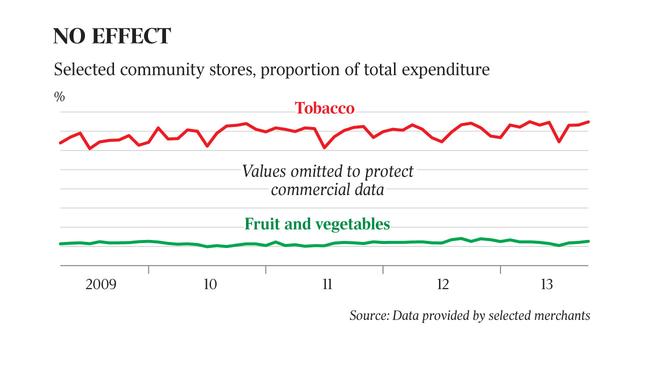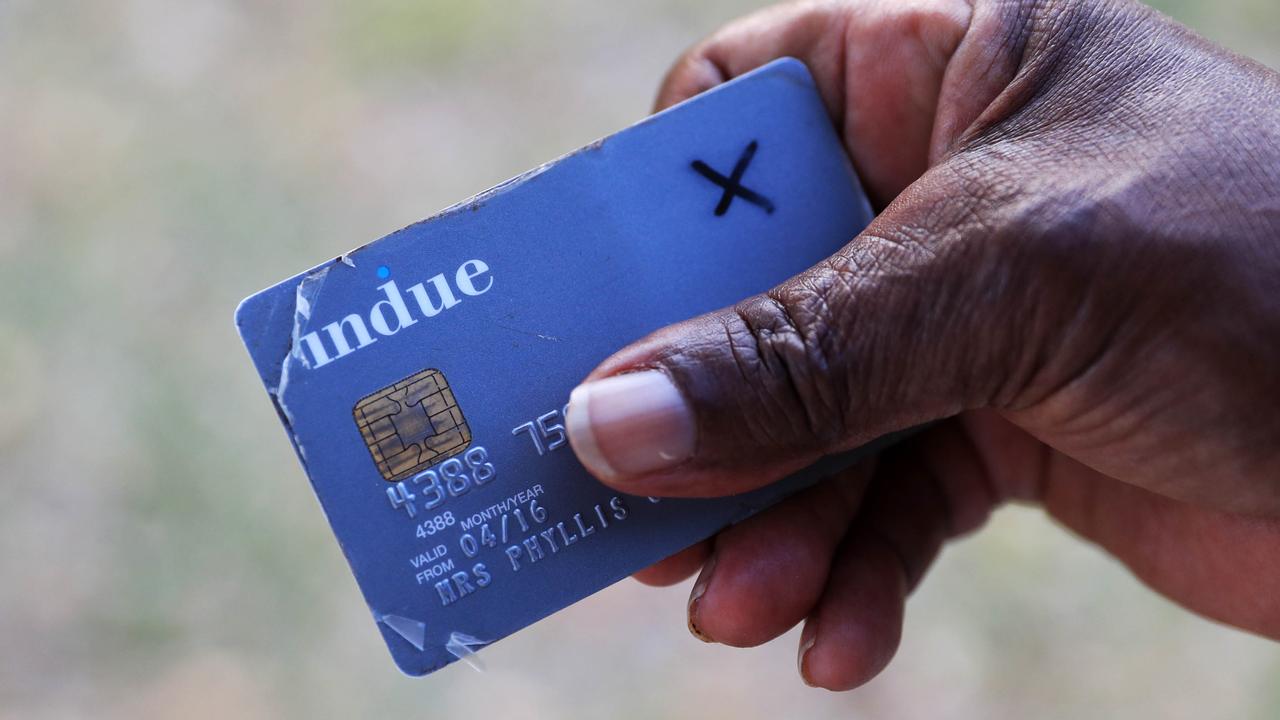Income control scheme ‘puts people on welfare’
A REPORT on income management has declared there is no evidence it has resulted in changes in spending or consumption.

A CONTROVERSIAL report commissioned by the former federal Labor government on income management has declared there is no evidence it has resulted in changes in spending or consumption, including on alcohol, tobacco, fresh fruit and vegetables and that it is instead entrenching welfare dependence.
For many, the program of quarantining some welfare payments to ensure they are spent on essential items such as food or clothes, has acted to make people more dependent on welfare, rather than building capacity and independence, the “Evaluating New Income Management in the Northern Territory” final report finds.
The UNSW and ANU report paints a largely negative picture about income management as the Abbott government decides what it will do with the program when it expires in July next year.
The government is considering mining magnate Andrew Forrest’s recommendation of a cashless welfare card to replace the present Basics Card.
Social Services Minister Kevin Andrews has disputed the evidence in the report, in an opinion piece for The Australian today, and signalled that higher levels of income quarantining may be more effective.
The report evaluates income management in the Territory, but a different version of income management in Cape York is linked to the family relationships commission and has been praised for its local success.
Mr Andrews said the Abbott government was committed to using income management to help stabilise the lives of some of the most vulnerable Australians.
“There have been several reports, including one I have released today on the income management trial site in the Northern Territory, that have found that income management is a useful tool to help people get back on their feet,” he said.
Mr Andrews said thousands of people around the country were being income-managed in trial sites including remote and city areas. About 20,000 people in the NT have 50 per cent of their welfare payments quarantined to help stop them gambling or buying drugs, alcohol, cigarettes or pornography.
He said some of the report’s findings were disappointing and seemed to be inconsistent with more positive findings from evaluations of income management in other sites.
“In Cape York, for example, people may have up to 90 per cent of their welfare payments quarantined for essentials like food and shelter rather than booze and cigarettes,” Mr Andrews said.
“Income management at 50 per cent is too low to achieve the positive social outcomes that income management can bring.
“Higher rates, be it 60 per cent, 70 per cent or more, would be a good start in ensuring that more people dependent on taxpayer-funded welfare can raise their families in a stable environment.”
The report, by Rob Bray and Matthew Gray from ANU, Kelly Hand from the Australian Institute of Family Studies and Ilan Katz from the UNSW, is based on research and surveys that found that at the household level there had been no aggregate improvement in financial wellbeing.
The key findings are that data on spending point to continued major problems of diet and poor levels of fruit and vegetable consumption, especially in remote communities.
Around two-fifths of people thought that income management had made things better for them; about one-third thought that it had made no difference; and about one-quarter thought that it had made things worse.



